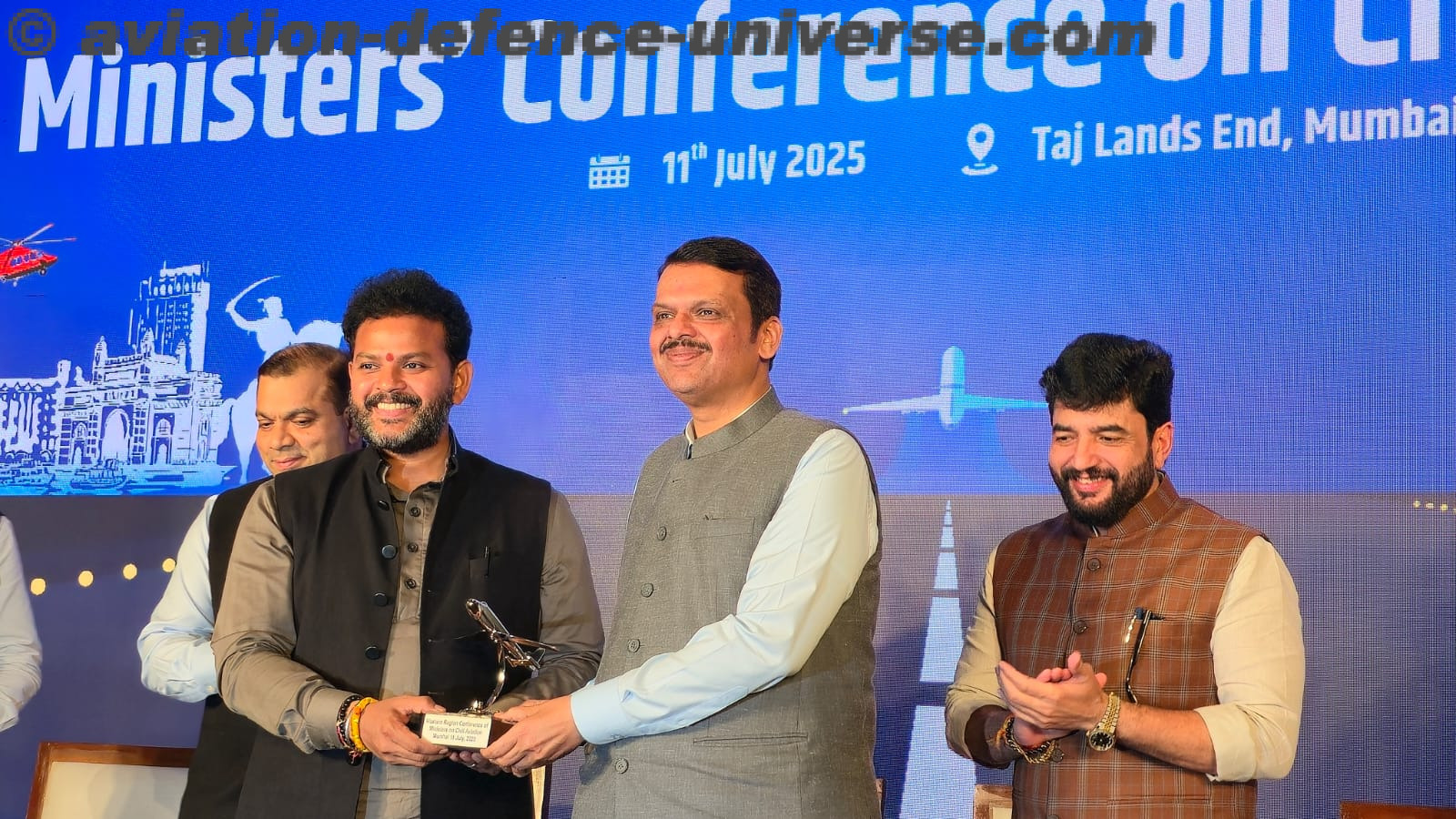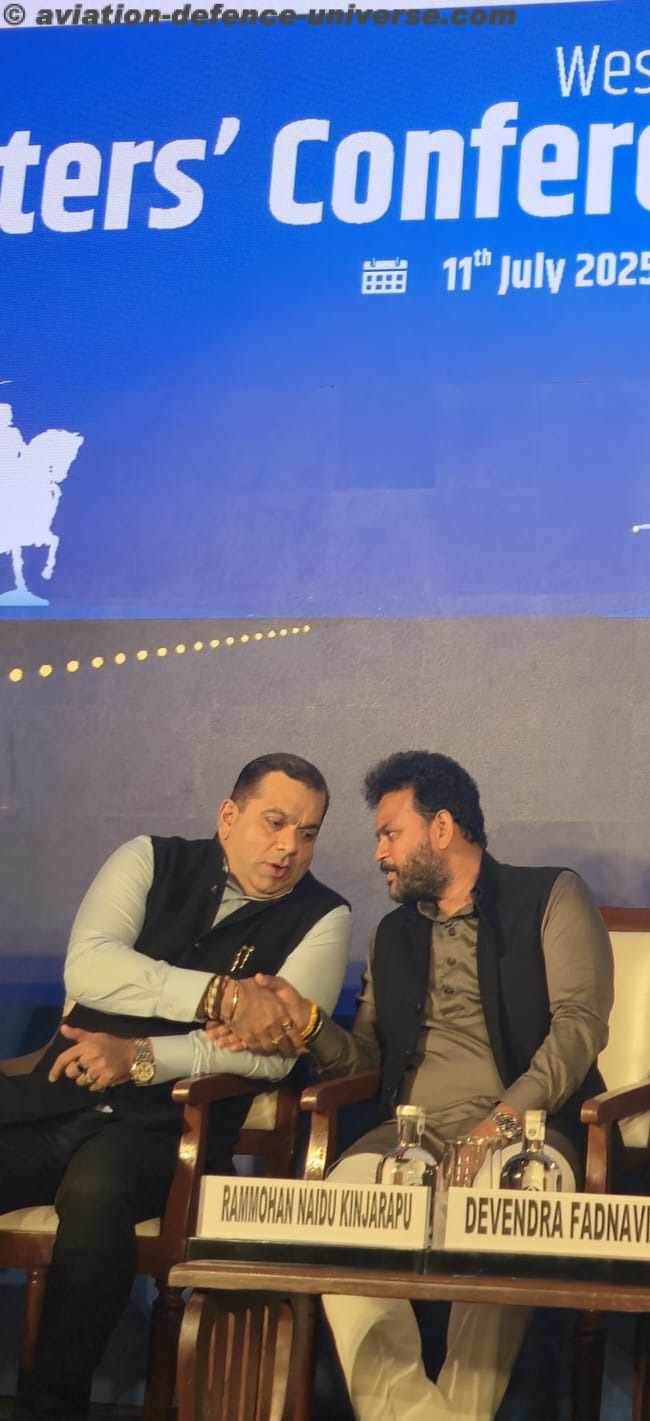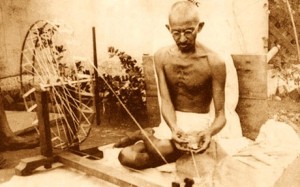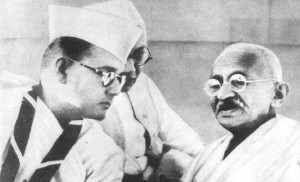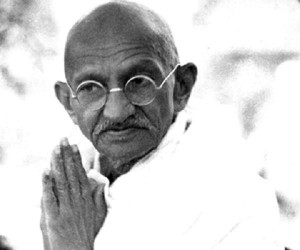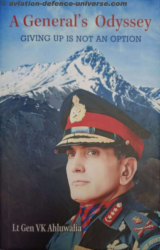New Delhi. 14 August 2021. It has been 73 years since Mahatma Gandhi attained martyrdom but his ideas on nationalist and internationalist security are so much in tune with the world today. For someone who was from an era when dictatorship was the populist form of regime barring a few nations, was contemporary to the likes of Adolph Hitler, Mao Tse Tung , Mussolini and saw the transition from rifles to atom bomb, his approach to conflict resolution was uniquely a combination of non-violence but active opposition of oppression.
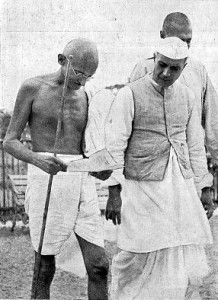 British Prime Minister Winston Churchill reiterated off and on that Gandhi certainly knew how to fight. His approach to security was rooted in his Truth and Nonviolence. He said, “the dignity of man requires obedience to a higher law—that of the spirit…. Mankind has to get out of violence through non-violence. Peace will come when Truth is pursued, and Truth implies Justice”.
British Prime Minister Winston Churchill reiterated off and on that Gandhi certainly knew how to fight. His approach to security was rooted in his Truth and Nonviolence. He said, “the dignity of man requires obedience to a higher law—that of the spirit…. Mankind has to get out of violence through non-violence. Peace will come when Truth is pursued, and Truth implies Justice”.
A proponent of nonviolence and peace in the world, surprisingly he has written on war, peace and security vis-à-vis individuals, states and vaster global perspectives. Gandhi, however, is not a system builder in thought and action. Despite leading India’s freedom struggle he always kept a vigilant eye on the world and international security issues. He disapproved of the 1938 Munich agreement and wrote with prophetic foresight “The agreement that has been signed is a peace that is no peace. The war is only postponed. England and France have quailed before the combined violence of Germany and Italy”. For Poland’s heroic resistance to Nazi invasion he expressed great admiration “The Poles knew they would be crushed and yet they resisted the German hordes. That is why I call it almost nonviolence.”
Military strategists world over have planned based on Gandhi’s famous lines, “three fourths of the miseries and misunderstandings in the world would disappear if we step into the shoes of our adversaries and understand their standpoint”. All actions which created suspicion, fear and anger in the opponent’s mind were to be averted and the contrary course adopted. This approach is embodied in UNESCO’s motto “Since wars begin in the minds of men, it is in the minds of men that the defences of peace must be constructed”. All activity for stopping war must prove fruitless so long as the causes of war are not understood and radically dealt with. Is not he prime cause of modern wars the inhuman race for exploitation of the so-called weaker races of the earth?
Gandhi in his words said, “Being a confirmed war resister, I have never given myself training in the use of destructive weapons in spite of opportunities to take such training. It was perhaps thus that I escaped direct destruction of human life. But so long as I lived under a system of Government based on force and voluntarily partook of the many facilities and privileges it created for me, I was bound to help that Government to the extent of my ability when it was engaged in a war, unless I non-co-operated with the Government and renounced to the utmost of my capacity the privileges it offered me.”
There were three occasions up to 1914 when Gandhi participated in war in some manner. The first was the Boer War (in 1899 and 1900), the second was a Zulu rebellion (1906), and the third was when he was in London in 1914. However in all three instances his participation amounted to raising ambulance units of Indians which I would see as very different from actual combat, although Gandhi did not personally make that distinction.
In 1940 Gandhi addressed the British: I appeal for cessation of hostilities, not because you are too exhausted to fight but because war is bad in essence. You want to kill Nazism. You will never kill it by its indifferent adoption. Your soldiers are doing the same work of destruction as the Germans. The only difference is that perhaps yours are not as thorough as the Germans. If that be so, yours will soon acquire the same thoroughness as theirs, if not much greater. On no other condition can you win the war. In other words, you will have to be more ruthless than the Nazis. No cause, however just, can warrant the indiscriminate slaughter that is going on minute by minute. I suggest that a cause that demands the inhumanities that are being perpetrated today cannot be called just.
Gandhi became a leading figure in the Indian home-rule movement. Calling for mass boycotts, he urged government officials to stop working for the Crown, students to stop attending government schools, soldiers to leave their posts and citizens to stop paying taxes and purchasing British goods. Rather than buy British-manufactured clothes, he began to use a portable spinning wheel to produce his own cloth, and the spinning wheel soon became a symbol of Indian independence and self-reliance. Gandhi assumed the leadership of the Indian National Congress and advocated a policy of non-violence and non-cooperation to achieve home rule
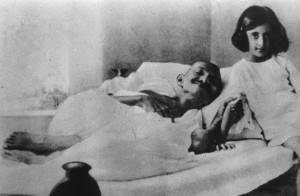 For a man who so believed in non-violence met with a real violent end. In the late afternoon of January 30, 1948, the 78-year-old Gandhi, still weakened from repeated hunger strikes, clung to his two grandnieces as they led him from his living quarters in New Delhi’s Birla House to a prayer meeting. Hindu extremist Nathuram Godse, upset at Gandhi’s tolerance of Muslims, knelt before the Mahatma before pulling out a semiautomatic pistol and shooting him three times at point-blank range. The violent act took the life of a pacifist who spent his life preaching non-violence. Godse and a co-conspirator were executed by hanging in November 1949, while additional conspirators were sentenced to life in prison. But his legacy which guides India even today is peace and non-violence.
For a man who so believed in non-violence met with a real violent end. In the late afternoon of January 30, 1948, the 78-year-old Gandhi, still weakened from repeated hunger strikes, clung to his two grandnieces as they led him from his living quarters in New Delhi’s Birla House to a prayer meeting. Hindu extremist Nathuram Godse, upset at Gandhi’s tolerance of Muslims, knelt before the Mahatma before pulling out a semiautomatic pistol and shooting him three times at point-blank range. The violent act took the life of a pacifist who spent his life preaching non-violence. Godse and a co-conspirator were executed by hanging in November 1949, while additional conspirators were sentenced to life in prison. But his legacy which guides India even today is peace and non-violence.











